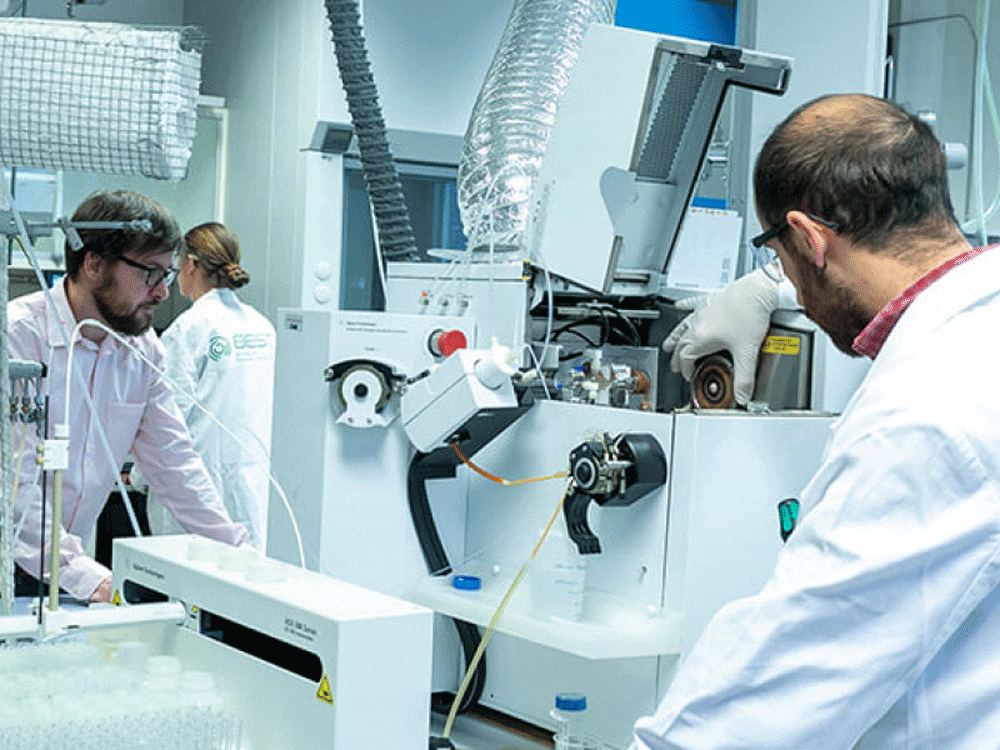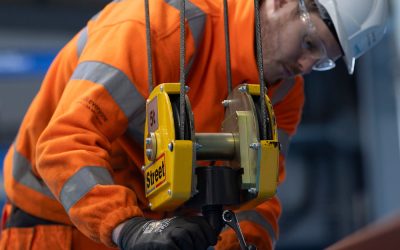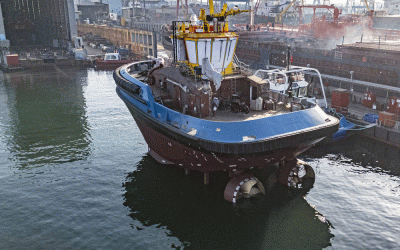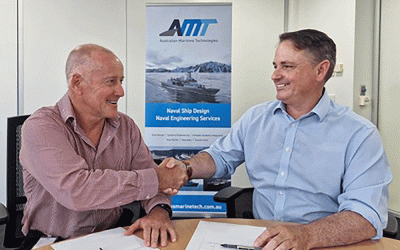Scientists at Aston University in Birmingham, UK believe they may have produced a viable alternative to traditional marine bunker fuels, care of a blend of leftover cooking oil, lamb fat and agricultural waste.
The research project – undertaken in cooperation with colleges in Brighton (UK) and Madras and Chennai (India – saw the scientists take delivery of agricultural waste pellets from a Dutch anaerobic digestion (AD) plant. These pellets – each measuring about 20mm in length and 6mm in diameter – were then treated in Aston University’s pyrolysis-based reactor, which heated them up to 500°C to convert them into bio-oil.
Solvents were then added to the bio-oil, which was blended with alternate batches of cooking oil or lamb fat to create the alt-fuel. The lamb fat was sourced from a local butcher and processed on site at the university.
Dr Abul Kalam Hossain, senior lecturer in Aston University’s Department of Mechanical, Biomedical and Design Engineering, tells Ship & Boat International that it was necessary to create this blend as attempting to turn the waste pellets into bio-oil, and then using this as a standalone alt-fuel, would have resulted in high acidity and low energy content/low viscosity.
“Bio-oil is a complex mixture of many compounds, many of which are acidic in nature,” he says. “The bio-oil is often unstable as it is formed from homolytic fission of carbon-carbon [C-C] bonds that generate free radicals. These radicals continue to react over many months, often leading to phase separation and the formation of an aqueous, organic layer.”
The researchers created five blends, using differing amounts of bio-oil, solvent and cooking oil or lamb fat for each. “The blend preparation time was only 10-15 minutes, but we stored it to check the phase separation or miscibility for at least 72 hours,” says Hossain. All five blends then were stored in the dark for a period of eight months, and at ambient lab temperatures in the range of 18±2°C. Hossain explains: “The samples were stored in the dark for two reasons: to reflect the onboard storage condition; and, from a scientific perspective, to avoid photooxidation of fuel.”
At the end of the eight months, the blends were found to have improved their heat value, viscosity and density by around 25-40%, the university reports. As a result, the new alt-fuel complies with ISO 8216 and ISO 8217 marine fuel standards for diesel engines and boilers.
“The improvement of heat value, viscosity and density have a direct relationship with engine performance and exhaust emissions,” says Hossain. “Engine performance will improve, and the level of engine pollution will decrease. Potentially, these blends can be used directly in standard marine diesel engines.”
However, he cautions: “These blends are potentially more corrosive than petrochemical-sourced fuel, so long-term studies on the use of this fuel blend would be required to establish engine performance against time.”
Cost-wise, would these blends be more expensive than diesel? Hossain replies: “The fuel produced in this study is for research purposes only, and is at small scale. A detailed economic production analysis would be required to scale up both AD bio-oil and animal fat to fully answer this question. Given that algal oil is about 10 times more expensive than petroleum oil, it is likely that this fuel will be another order of magnitude higher again.” The university team now plans further research into maritime applications.






